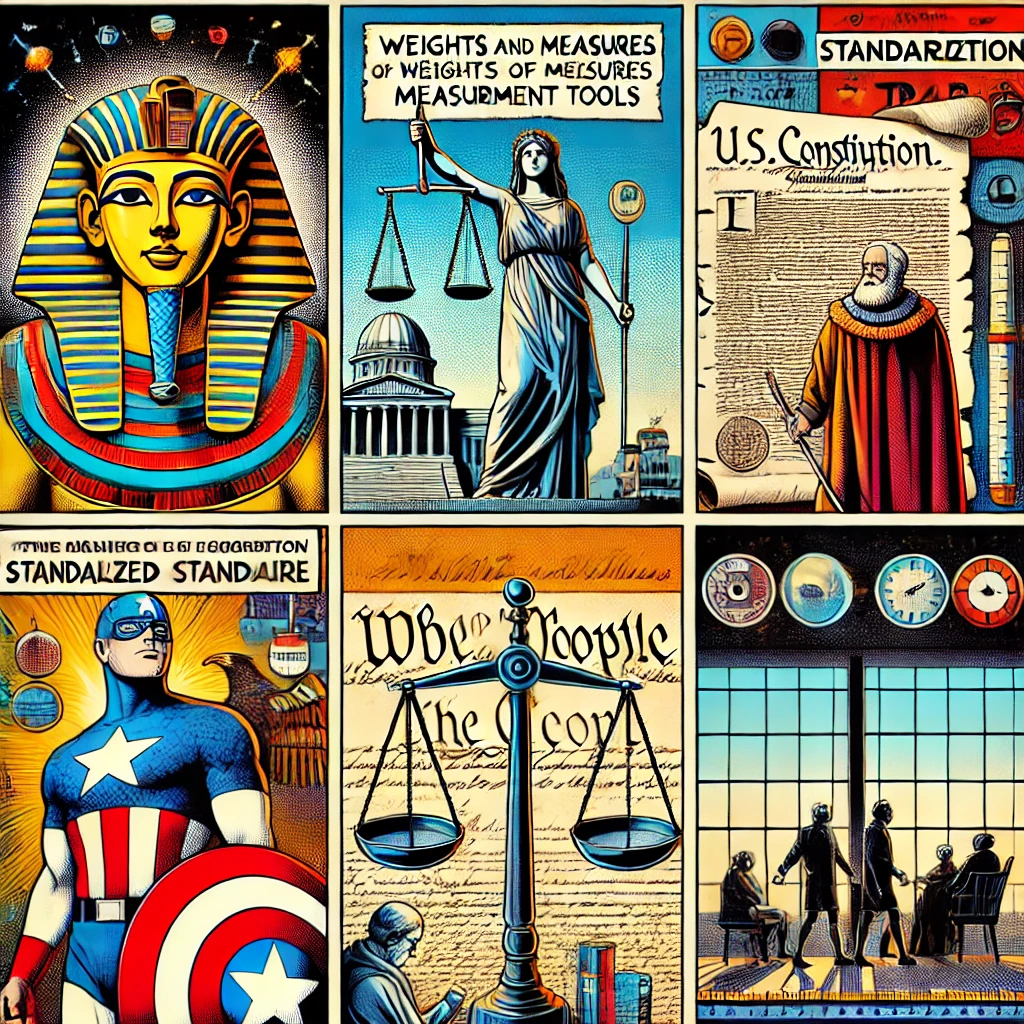Thoth and Hermes Through to the Magna Carta and US Constitution Weights and Measures
Thoth, Hermes, civilization and the law. Ancient symbolism, law and gods related to weights and measures and although the gods may have gone the importance of their purpose remains as valid to us now as it did in the ancient past.
The evolution of standardized weights and measures is a testament to humanity’s pursuit of fairness and consistency in trade and governance. This journey, influenced by ancient deities like Thoth and Hermes, has significantly shaped legal frameworks such as the Magna Carta and the U.S. Constitution.
Ancient Foundations: Thoth and Hermes
In ancient civilizations, Thoth, the Egyptian god of wisdom, and Hermes, his Greek counterpart, were revered as patrons of knowledge, writing, and measurement. Thoth was credited with inventing writing and establishing laws, playing a crucial role in maintaining cosmic order. Similarly, Hermes was associated with communication and commerce, embodying the principles of exchange and fair trade. These deities symbolized the importance of accurate measurement systems, which were essential for trade, construction, and taxation.
Medieval Milestone: The Magna Carta
Fast forward to 1215, the Magna Carta emerged as a pivotal document in medieval England, addressing various grievances between King John and his barons. Among its numerous clauses, it emphasized the necessity for uniformity in weights and measures:
“There shall be standard measures of wine, ale, and corn (the London quarter), throughout the kingdom. There shall also be a standard width of dyed cloth, russet, and haberject, namely, two ells (yards) within the selvedges. Weights are to be standardized similarly.”
This insistence on standardization was crucial for ensuring fair trade practices and preventing fraud, laying the groundwork for future legal systems that prioritize equitable commerce.
Modern Implementation: The U.S. Constitution
The principles enshrined in the Magna Carta influenced the framers of the U.S. Constitution. Article I, Section 8, grants Congress the power to:
“…fix the Standard of Weights and Measures.”
This clause underscores the federal government’s role in establishing consistent measurement standards across the nation, facilitating interstate commerce and ensuring consumer protection. The adoption of standardized measurements was vital for a developing nation, promoting economic stability and fairness.
Continuity and Significance
The thread connecting Thoth and Hermes to the Magna Carta and the U.S. Constitution highlights a continuous recognition of the importance of standardized measurements. From ancient times, where deities symbolized the divine order of measurement, to medieval charters demanding uniformity, and finally to modern constitutions institutionalizing these standards, the objective has remained consistent: to ensure fairness, accuracy, and trust in societal transactions.
In contemporary society, while the divine associations have faded, the legacy of these measurement standards persists. Institutions like the National Institute of Standards and Technology (NIST) uphold these principles, ensuring that measurements remain consistent and reliable, reflecting a commitment that spans millennia.
Understanding this historical progression enriches our appreciation of the systems that underpin daily life, reminding us that the quest for fairness and accuracy is a timeless human endeavor.
